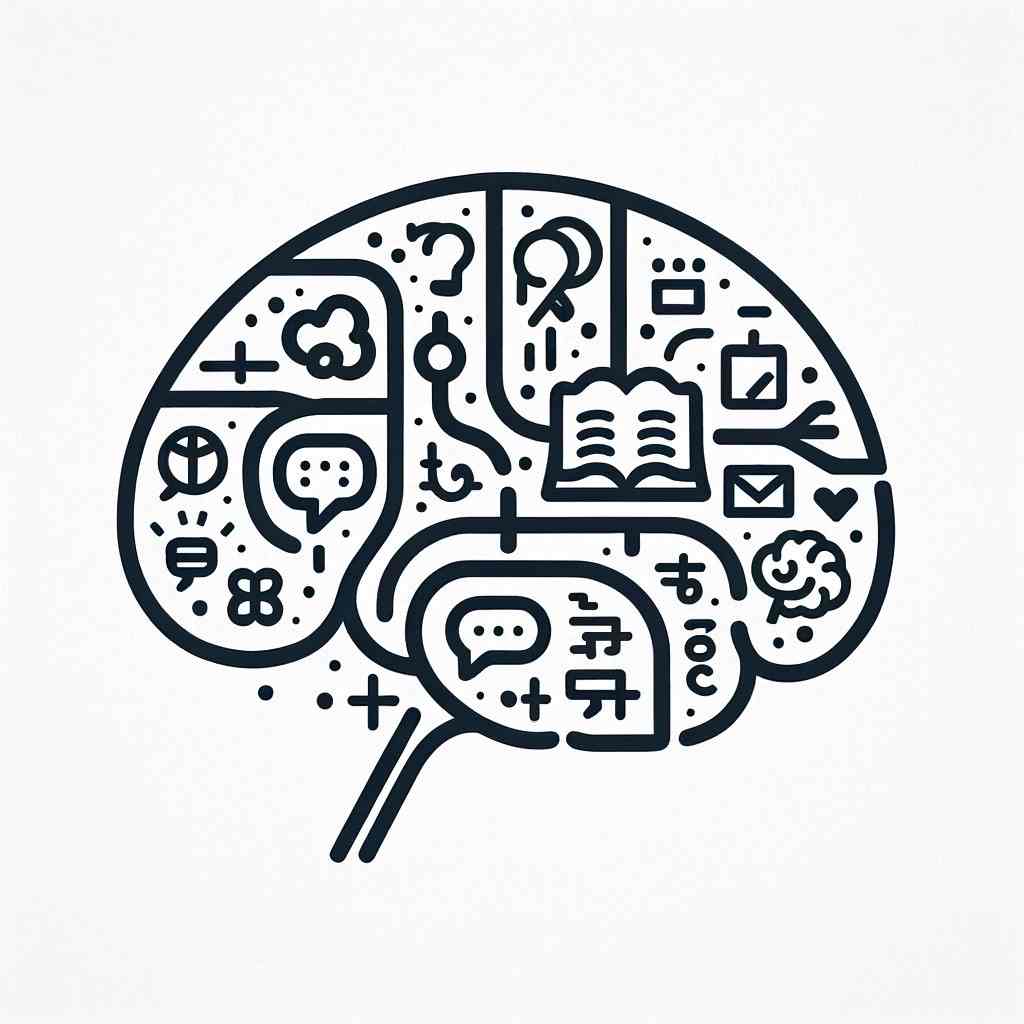· study hacks · 5 min read
The Benefits of Bilingualism: How Learning a Second Language Can Boost Your Brain
Discover the scientific insights into the cognitive benefits of learning a new language and how bilingualism can improve mental agility. Uncover how mastering a second language with Glosa can enhance your brain health and overall cognitive function.

The Benefits of Bilingualism: How Learning a Second Language Can Boost Your Brain
Have you ever considered the cognitive advantages of learning a second language? Beyond the obvious benefits of communication and cultural immersion, bilingualism offers a significant boost to your brain health and mental agility. In this blog post, we delve into the scientific insights on how learning a new language can enhance cognitive function, improve memory, and provide long-term brain health benefits. Let’s explore why mastering a second language with Glosa can be one of the best investments you make for your mind.
Cognitive Benefits of Learning a Second Language
Enhanced Mental Flexibility
Bilingual individuals often exhibit greater mental flexibility. This is the brain’s ability to switch between tasks and adapt to new situations quickly. Learning and using a second language requires constant mental juggling, which enhances the brain’s executive control functions. This flexibility helps in problem-solving and multitasking, making bilingual individuals more adept at navigating complex environments.
Improved Memory
One of the most remarkable benefits of bilingualism is its impact on memory. Studies have shown that bilingual individuals have better working memory, which is the ability to hold and manipulate information over short periods. This enhanced memory capacity is linked to improved performance in various cognitive tasks, including reading comprehension and mathematical problem-solving.
Delayed Onset of Dementia
Research indicates that bilingualism can delay the onset of dementia and other age-related cognitive decline. A study published in the journal Neurology found that bilingual individuals developed dementia symptoms on average 4.5 years later than monolingual individuals. The cognitive reserve built by managing multiple languages helps protect the brain against degenerative diseases.
How Learning a New Language Improves Mental Agility
Increased Attention Control
Learning a second language improves your brain’s ability to focus and ignore distractions. Bilinguals are better at concentrating on relevant information and filtering out irrelevant stimuli. This heightened attention control is beneficial not only in language tasks but also in daily life, where staying focused is crucial for productivity and efficiency.
Better Problem-Solving Skills
Bilingual individuals often outperform monolinguals in problem-solving tasks. The constant practice of switching between languages enhances cognitive skills such as pattern recognition, abstract thinking, and creative problem-solving. This ability to think outside the box is a valuable asset in both personal and professional contexts.
Enhanced Cognitive Flexibility
Cognitive flexibility is the brain’s ability to adapt to new and unexpected conditions. Bilingualism strengthens this skill by requiring the brain to switch between different language systems. Enhanced cognitive flexibility is associated with better adaptability, faster learning, and more efficient decision-making processes.
The Science Behind Bilingualism and Brain Health
Brain Imaging Studies
Brain imaging studies provide visual evidence of the benefits of bilingualism. Functional MRI scans show that bilingual individuals have more gray matter in areas of the brain associated with executive control and cognitive function. These areas include the dorsolateral prefrontal cortex, the anterior cingulate cortex, and the inferior parietal lobule. Increased gray matter density in these regions correlates with better cognitive performance.
Neuroplasticity
Neuroplasticity refers to the brain’s ability to reorganize itself by forming new neural connections throughout life. Learning a new language is a powerful way to stimulate neuroplasticity. The challenges of acquiring vocabulary, mastering grammar, and practicing pronunciation create new pathways in the brain, enhancing its overall plasticity and resilience.
Long-Term Benefits of Bilingualism
Lifelong Learning
Bilingualism fosters a lifelong love of learning. The skills and strategies developed while learning a second language can be applied to acquiring additional languages or mastering new skills in other areas. This continuous learning keeps the brain engaged and active, promoting overall cognitive health.
Enhanced Cultural Awareness
In addition to cognitive benefits, bilingualism enhances cultural awareness and empathy. Understanding and communicating in another language opens doors to different perspectives and ways of life. This cultural competence is invaluable in our increasingly globalized world, fostering greater understanding and cooperation among diverse communities.
Professional Advantages
In today’s interconnected world, bilingualism offers significant professional advantages. Employers highly value the ability to communicate in multiple languages, as it enhances cross-cultural communication and opens up opportunities in international markets. Bilingual individuals often enjoy better career prospects and higher earning potential.
Conclusion
Learning a second language is not just about adding a new skill to your repertoire; it’s about enriching your mind and enhancing your cognitive abilities. The benefits of bilingualism extend far beyond language proficiency, offering profound advantages for brain health and mental agility. With Glosa, you have the tools and support you need to embark on this rewarding journey. Start learning a new language today and unlock the full potential of your brain!
Learning a second language is not just about adding a new skill to your repertoire; it’s about enriching your mind and enhancing your cognitive abilities. The benefits of bilingualism extend far beyond language proficiency, offering profound advantages for brain health and mental agility. With Glosa, you have the tools and support you need to embark on this rewarding journey.
Download Glosa today and start learning a new language to unlock the full potential of your brain!
More Tips and Updates
For more insights into the benefits of bilingualism and tips on learning new languages, visit our blog at /tag/bilingualism.




